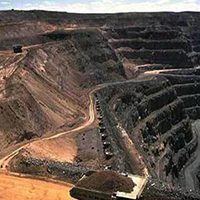The International Centre for Settlement of Investment Disputes (ICSID), one of the five organisations of the World Bank Group, has announced a 700-page ruling against Pakistan in the Reko Diq case. The ICSID awarded a $4.08bn penalty and $1.87bn in interest.
The management of the Tethyan Copper Company (TCC) had claimed $11.43bn in damages. The company had filed claims for international arbitration before the ICSID in 2012 after the Balochistan government rejected a leasing request from the company.
Reko Diq mine is famous because of its vast gold and copper reserves and is believed to have the world’s fifth largest gold deposit. Reko Diq, which means sandy peak in the Balochi language, is a small town in Chagai district in Balochistan. It is located in a desert area, 70km north-west of Naukundi, close to the border with Iran and Afghanistan. The area is located in the Tethyan belt that stretches all the way from Turkey and Iran into Pakistan.
Progress on the Reko Diq project came to a standstill in November 2011, when the government of Balochistan summarily rejected the application by the TCC’s local operating subsidiary for a mining lease in respect of Reko Diq.
The TCC was of the view that under the Chagai Hills Joint Venture Agreement (CHEJWA) between the company and the Balochistan government, as well as under the Balochistan Mineral Rules 2002, the TCC Pakistan was legally entitled to the mining lease subject only to ‘routine’ government requirements.
To protect its legal rights, in November 2011 the TCC commenced international arbitration proceedings at two forums: one against the Pakistan government with the International Centre for Settlement of Investment Disputes, asserting breaches of the Bilateral Investment Treaty between Australia (where the TCC is incorporated) and Pakistan, and another against the Balochistan government with the International Chamber of Commerce, asserting breaches of the CHEJVA.
Tethyan board chair William Hayes said in a statement the company was still “willing to strike a deal with Pakistan,” but added that “it would continue protecting its commercial and legal interests until the dispute was over.”







